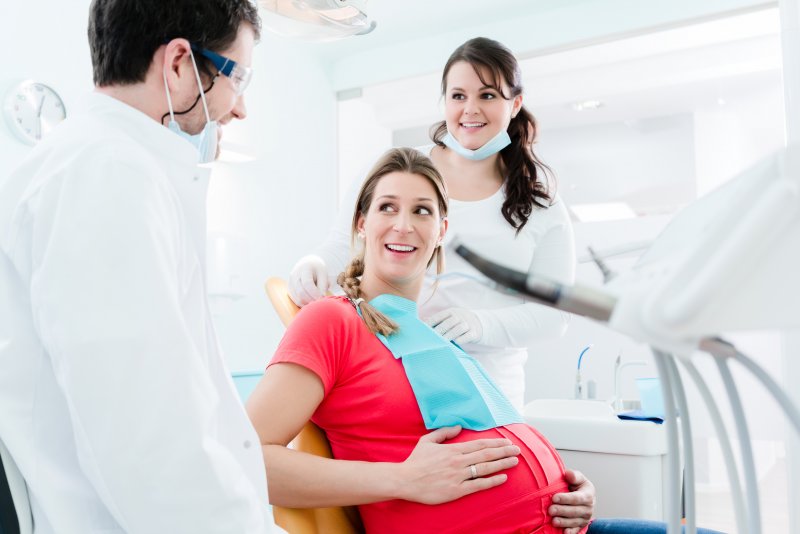
Pregnancy often comes with a lot of uncertainties and worries. Even though you are needing dental work to keep your smile in optimal shape, it’s important to ensure that it is a safe option for both you and your baby. Any concerns that you are having are perfectly valid and common. Read on to learn how you can safely receive dental work while you’re pregnant as well as which procedures you should put on hold until after your baby has been born.
Are Cleanings and Checkups Safe for Pregnant Women?
It is both safe and encouraged to have your teeth examined and cleaned while you are pregnant. When your hormone levels are higher than usual, you are more likely to experience gum inflammation, bleeding, and irritation. By seeing your dentist for cleanings and checkups during this time, you will be able to avoid oral infections more easily, like gum disease, that can lead to complications, including preterm birth.
Which Dental Procedures Are Safe for Pregnant Women?
When pregnant, you should do everything you can to prevent infections. This may mean undergoing dental procedures like fillings and crowns. Emergency procedures, like root canals and extractions, may also be necessary.
Your dentist will administer a small amount of anesthetic to ensure that you are comfortable. This can help to reduce stress on both you and your baby. It is safe for your dentist to use local anesthetics, like lidocaine, during these procedures. If necessary, they may also recommend a category B antibiotic to prevent and treat infections.
If you are interested in elective or cosmetic work, it is best to wait until after your baby is born. While these treatments are generally considered safe, it is always best to avoid any possible risks of complications if at all possible.
Can Pregnant Women Get Routine X-Rays?
The American College of Radiology reports that no single diagnostic X-ray has a radiation dose significant enough to cause any adverse effects on an unborn child. The American Dental Association (ADA) considers dental X-rays to be safe with appropriate shielding. However, if your X-ray isn’t for an emergency treatment, it can usually be postponed till your next visit if you would prefer to do so.
If you are an expectant mother, let your dentist know how far along you are. This way, they can take all of the necessary precautions for you and your baby when you receive treatment. If your pregnancy is high-risk, this is also something you should mention. The health and safety of you and your baby is your dentist’s number one priority!
About the Author
Dr. Teresa Knott is an experienced dentist who has been working in the field for nearly two decades! She earned her dental doctorate from the University of Texas Health Science Center in San Antonio. She is a member of the Texas Dental Study Club, a branch of the Seattle Study Club that is a leading provider of continuing education for dentists. She has also attended classes offered by SPEAR Education in Scottsdale, AZ. For more information or to schedule an appointment at her office in Garland, visit her website or call (972) 530-5200.
